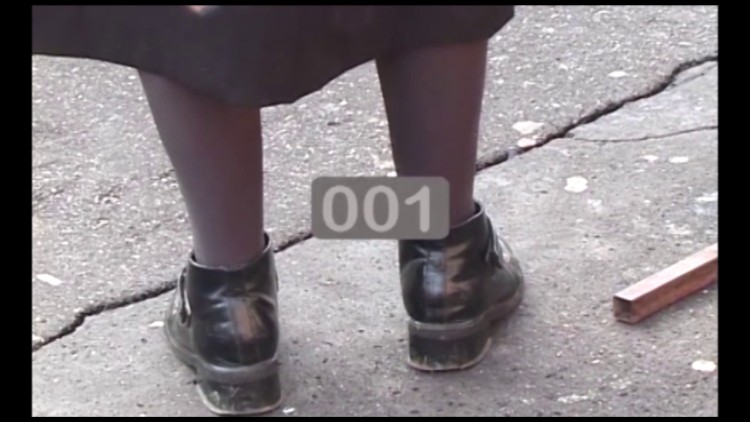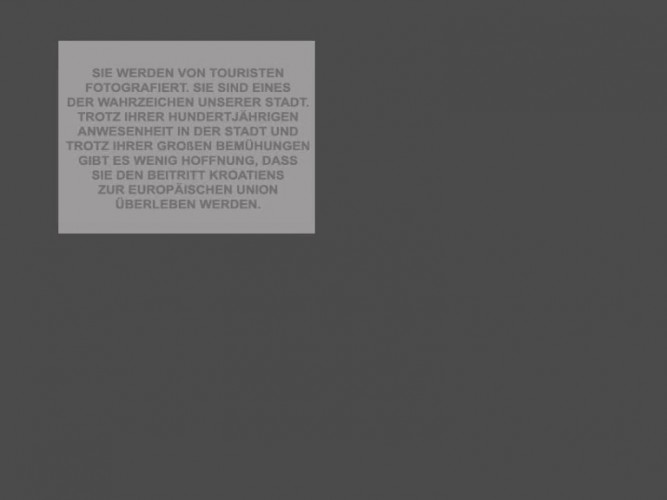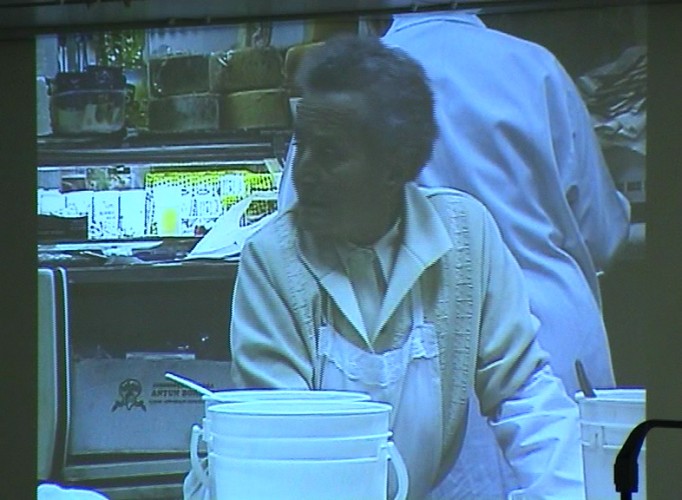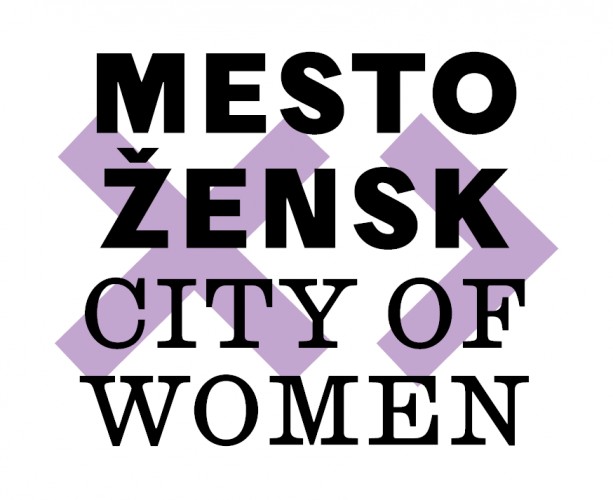One inevitable side effect of the process of globalisation and standardisation in Europe seems to be the assimilation and disappearance of certain local characteristics and cultural particularities. Can this process of adjusting economic standards be modified so that these practices are functionally protected and maintained? What can be done to achieve this goal? These are the questions at the heart of the Milk 2002-2003 Project, an ongoing social initiative as well as a multimedia documentary and communication project, initiated and conceptualised by the Croatian artist Kristina Leko and produced in collaboration with the Local Base for Culture Refreshment, BLOK, Zagreb. By focusing on a single small detail in the big picture of European standardisation-the possible disappearance of the milkmaids of Zagreb and one of the traditional women's trades-the project shows as in a prism the numerous dimensions of this process of change.
Tourists photograph them. They are one of the trademarks of the city of Zagreb. And yet despite all their hard work and the centuries they have been in the city, it is unlikely they will survive Croatia's entry into Europe. Europe wants refrigerated markets, and most of these women will not be able to cope with the rise in prices at their point of sale. Europe also makes demands about the quality of fresh milk, and outside of the big farms, these demands can be met only with great difficulty and expense. The way the big farms are developing, it could well be that in a hundred years no one will ever touch a cow or talk with it. And the people who talk with the cows will gradually vanish. As also, perhaps, will those who talk with each other at the marketplace. (Declaration on the Zagreb Milkmaids, Kristina Leko)
According to Leko's research, more than 80% of about 300 milkmaids will cease their activity if they have to pay the new price at their point of sale that was announced. Many of them have been working for decades at the same marketplace, and have established a very personal interaction with long-time clients. Most of them are among the 95% of Croatian milk producers that have no more than three cows. This goes along with a very special relationship to nature and animals, as well as to the quality of the product. Milkmaids represent a traditional female profession, and an example of women who guarantee the financial stability of their families. Many of the milkmaids are totally dependent on the income they get at the market, since they usually have only a very small pension, if any.
The MILK 2002-2003 Project seeks to improve the position of Zagreb milkmaids by making an impact on public opinion and the legal process, as well as by providing a platform for the milkmaids to organise. The project was kick-started with an action in Zagreb's Dolac Marketplace in August 2002, when three milkmaids (Katica Bzig, Bregovlje, 57 years of working at the Dolac Marketplace; Marija Spoljar, Donja Bistra, 55 years of working at the Dolac Marketplace; Marica Seničić, Jakovlje, 44 years of working at Dolac Marketplace), along with Kristina Leko and organisers from Urban Festival Zagreb, handed out free fresh cheese and cream to customers and collected signatures.
The other components of the project are as follows:
an extensive database containing a complete listing of Zagreb's milkmaids, video and photographic portraits, as well as personal statements;
a web site, scheduled to be published at the end of October 2003, that will feature the database and a multimedia archive, as well as historical and current information, for instance, on the industrialisation of dairy production;
an exhibition at Zagreb's PM Gallery in November 2003, featuring video and photographic material, the complete results of the research, as well as a collection of objects; an extensive media campaign accompanying the exhibition that will publicise the issue of possible legal protection for the milkmaid profession.
City of Women presented a preview of the project results, including a video screening of Zagreb's Milkmaids on Your Right, as well as a look at the extensive documentary material, presented by Kristina Leko and Vesna Vuković (BLOK, Zagreb). Višnja Čukelj Milkmaid, Zagreb) offered a view of her daily working and living routines and present her requests concerning the future of her profession.
Kristina Leko / Bettina Knaup




